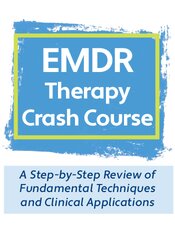
×

Whether you’re a newcomer eager to take a closer look at EMDR therapy or a seasoned practitioner searching for a revitalizing refresher, this one-day webinar is for you.
You’ll dive in with Certified EMDR Clinician and trainer Laura Swinford as she shares overviews of every phase of EMDR.
With each session she’ll transform the “whys” of EMDR into clear and logical explanations, making the entire process more comprehensible. More importantly, she’ll bring the “hows” of EMDR within your reach, providing practical strategies that you can implement with confidence.
When you register you’ll discover:
Easy enough for beginners to get their footing, yet packed with enough specifics, techniques, and tips to reinvigorate seasoned practitioners, you’ll end this training eager to use what you’ve learned.
Register today!
All members of the PESI, Inc. planning committee have provided disclosures of financial relationships with ineligible organizations and any relevant non-financial relationships prior to planning content for this activity. None of the committee members had relevant financial relationships with ineligible companies or other potentially biasing relationships to disclose to learners. For speaker disclosures, please see the faculty biography.
Continuing education credit information is coming soon for this live webcast.

Laura Swinford, LCSW, EMDR-C, is certified in EMDR, trains therapists as part of PESI’s 6-month EMDR Certification Program and provides EMDR consultation. She works as a therapist in a group private practice specializing in the treatment of trauma using EMDR, Ego State Therapy and Somatic Experiencing®. She has been certified in EMDR for nearly a decade and has used it with clients over that span to help them better process their past traumas and increase their ability to identify and cope with destructive emotions. She has more than 15 years of clinical experience and is also a published author of research work in the mental health field. Ms. Swinford previously served as an adjunct professor at University of Illinois Champaign-Urbana, where she taught evidence-based treatment to master’s level students. Ms. Swinford believes in connection and relationship as she journeys through life. She brings this approach to her work, matching techniques to the needs of her clients.
Speaker Disclosures:
Financial: Laura Swinford has employment relationships with Know Yoga Know Peace and Spencer Psychology. She receives a speaking honorarium from PESI, Inc. She has no relevant financial relationships with ineligible organizations.
Non-financial: Laura Swinford has no relevant non-financial relationships.
|
EMDR Therapy Crash Course: A Step-by-Step Review of Fundamental Techniques and Clinical Applications
Fri, Apr 04, 2025 - 09:00am to 05:00pm EDT - Product Code LWC059876 |
For live CE credit, you must watch the live webcast in its entirety at its scheduled time and complete the CE quiz and evaluation within one week. You will have access for 90 days after the program for review.
Please note: There will be a 70-minute lunch and two 15-minute breaks; one in the morning and one in the afternoon. Lunch and break times will be announced by the speaker and at their discretion. A more detailed schedule is available upon request.
Visit our FAQ page at https://www.pesicanada.ca/faq or contact us at https://www.pesicanada.ca/contact-us.
EMDR Foundations and Fundamentals
History Taking Gems: How to Get the Most Out of Phase 1
Preparation and Resource Essentials for Phase 2
Assessment, Desensitization and Installation: What to Do and What to Avoid in Phases 3, 4 and 5
The Body Scan, Closure and Re-evaluation: Finishing Strong in EMDR Phases 6 - 8
Additional EMDR Strategies: Blockages, Interweaves and More
Satisfaction Guarantee
Your satisfaction is our goal and our guarantee. Concerns should be addressed to info@pesicanada.com.
Please wait ...